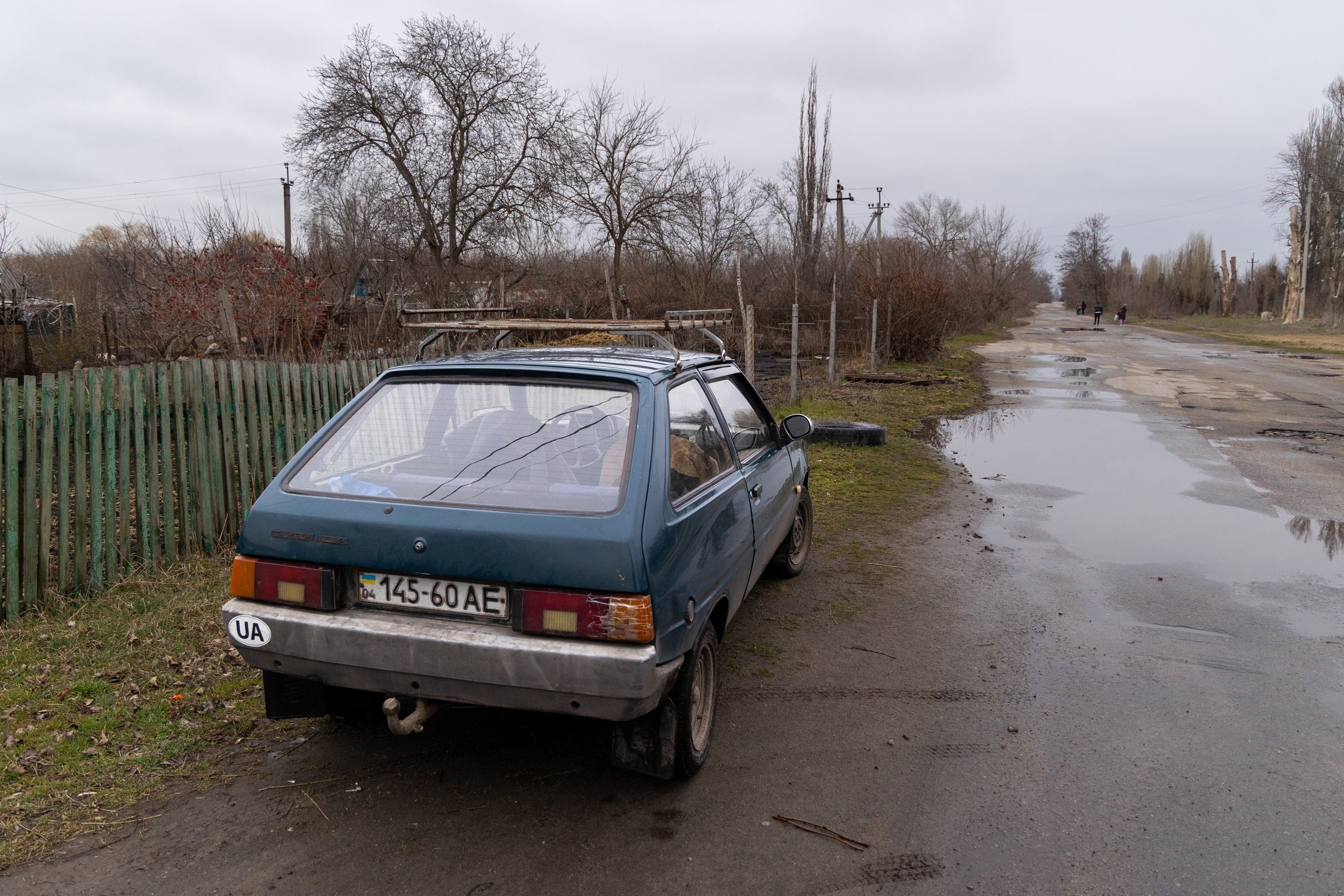"Thank God nobody got out of the car at that moment. Thank God. If we were outside the car, we would have been hit."
Valerii is a team lead for Insulate Ukraine Nikopol. He and his teammates had been en route to a build location near city center, a daily activity as they helped to reconstruct the countless windows shattered by artillery and war in their home city of Nikopol.
"The drone hit directly under the front of the car. Shrapnel destroyed everything in the bottom, radiator, the bumper flew away, the windshield was shattered."
There is no denying that the work of the Insulate Ukraine teams in Nikopol is dangerous. The city itself is high risk red zone. Russia hits the city daily with a deadly mix of artillery, drones and rockets. The attacks are indiscriminate and target civilians and civilian infrastructure. But this is home for Valerii. He is one of many civic heroes who chose to stay to support their home town in any way they can.
The Insulate Ukraine team is made up of individuals like this, who were helping their towns before Insulate Ukraine arrived. If we were to cease operations tomorrow, they would still be on the ground the next day working to help their neighbors, their families, and their home. The existence of the Insulate Ukraine initiative means that when supporting their community, our workers can at least do it equipped with armoured vests, tourniquets and first aid materials to alleviate that risk.
Valerii looked down at the car “We didn't even have time to understand what happened. No fear, just confusion. At first we actually tried to drive the car away before realizing it was damaged."
That day was no different than any other, the only difference was chance. By chance a russian drone had spotted their car. By chance the drone operator, one can imagine a recruit in training, had missed a direct hit to the driver side door - the prime target for maximum bodily harm. By chance the crew had waited a split second before leaving the car. By chance no shrapnel had pierced their bodies. In places like this, it was good to have luck on your side.
I asked what they did after, interested if such an experience caused any hesitation to go back out to work. "20 seconds after the hit we left on foot. The next day we gave car to repair, and we went back to work with another car."
It's hard to find a worthy metaphor to describe the grit and resilience of the Ukrainian people. Words fall short of doing it justice. Valerii's dark blue Tavria Nova, a front-wheel-drive subcompact from the Ukrainian manufacturer ZAZ, offered a bit of insight. The car had spent a week in the shop after the drone strike before returning to Valerii's hands.
"This is the same car?" I exclaimed to Valerii's laughter.
"Of course" he replied incredulously. As if a direct drone strike could possibly stop it, or him, from the work at hand.




